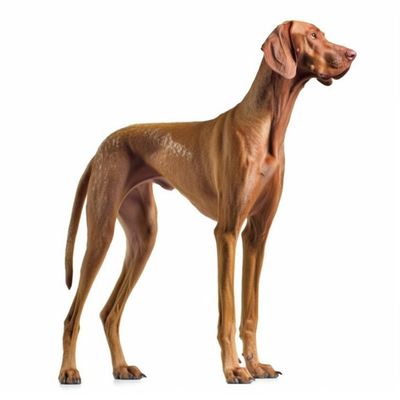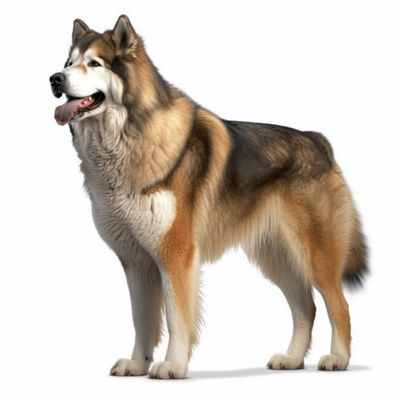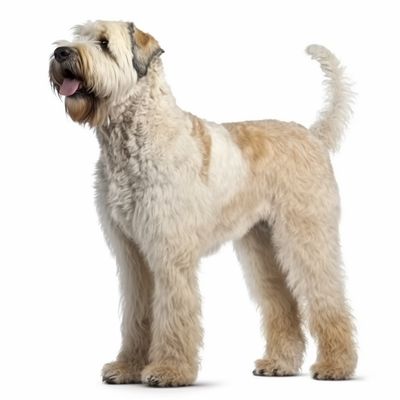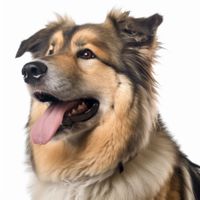Vizsla - vs - Alaskan Malamute - vs - Soft-Coated Wheaten Terrier

Vizslas are medium-sized dogs, weighing 45-65 lbs, with a height of 21-24 inches.
Vizslas have a high energy level and require plenty of exercise and mental stimulation.
Vizslas need a significant amount of exercise, including daily walks, runs, and interactive play sessions.
Vizslas are intelligent and eager to please, making them easy to train with positive reinforcement.
Vizslas are highly intelligent dogs and excel in various dog sports and activities.
Vizslas can adapt to various living situations, but they thrive in active households that can provide ample exercise.
Vizslas are generally good with children when properly socialized and can be energetic playmates.
Vizslas can get along well with other pets, especially when raised together.
Vizslas have short coats and may not be well-suited to extremely cold climates without proper protection.
Vizslas can tolerate hot climates, but they need to be monitored for signs of overheating during exercise.
Vizslas have short coats and shed minimally, making them low-maintenance in terms of grooming.
Vizslas require minimal grooming, with occasional brushing and bathing to keep their coats clean and healthy.
Vizslas have average bark tendencies and may bark for various reasons, such as alerting their owners or during playtime.
Vizslas are generally healthy, but regular veterinary checkups and preventative care are still necessary.

Alaskan Malamutes are large dogs, weighing 75-85 lbs, with a height of 23-25 inches.
Alaskan Malamutes have a medium energy level and require regular exercise and mental stimulation.
Alaskan Malamutes need a significant amount of exercise, including daily walks, runs, and opportunities for play and exploration.
Alaskan Malamutes can be challenging to train due to their independent nature. Consistent, positive reinforcement and patience are essential.
Alaskan Malamutes are highly intelligent dogs and excel in various dog sports and activities, especially those involving endurance and strength.
Alaskan Malamutes can adapt to different living situations, but they need plenty of space and exercise to thrive.
Alaskan Malamutes are good with children when properly socialized and supervised.
Alaskan Malamutes can get along with other pets, but their high prey drive may require caution around smaller animals.
Alaskan Malamutes are well-suited for cold climates, thanks to their thick, double-layered coats.
Alaskan Malamutes are not well-suited for hot climates and need to be monitored for signs of overheating during exercise.
Alaskan Malamutes have thick double coats that shed heavily, especially during seasonal shedding periods.
Alaskan Malamutes require frequent grooming, including regular brushing and occasional bathing to keep their coats clean and healthy.
Alaskan Malamutes bark occasionally, usually only when necessary or provoked.
Alaskan Malamutes may experience some health issues and require additional care and attention, such as regular veterinary checkups, preventative care, and potential medication or treatments.

Soft Coated Wheaten Terriers are medium-sized dogs, weighing 30-40 lbs, with a height of 17-19 inches.
Soft Coated Wheaten Terriers have a medium energy level, enjoying a good balance of playtime and relaxation.
Soft Coated Wheaten Terriers need regular exercise, including daily walks and playtime in a securely fenced area.
Soft Coated Wheaten Terriers are intelligent and trainable, but they can be independent thinkers. Consistent, positive reinforcement is key.
Soft Coated Wheaten Terriers are highly intelligent dogs and can excel in various dog sports and activities.
Soft Coated Wheaten Terriers can adapt well to different living situations, including apartments and larger homes, as long as their exercise needs are met.
Soft Coated Wheaten Terriers can be good with children, being playful and affectionate. However, supervision and proper handling are important.
Soft Coated Wheaten Terriers can get along well with other pets, especially when raised together.
Soft Coated Wheaten Terriers can tolerate colder temperatures, thanks to their thick, insulating coats.
Soft Coated Wheaten Terriers can tolerate hot climates but need to be monitored for signs of overheating during exercise.
Soft Coated Wheaten Terriers have a low-shedding coat, making grooming relatively easy.
Soft Coated Wheaten Terriers require regular grooming, including brushing and trimming to keep their coats clean and healthy.
Soft-Coated Wheaten Terriers are generally healthy, but regular veterinary checkups and preventative care are still necessary.



